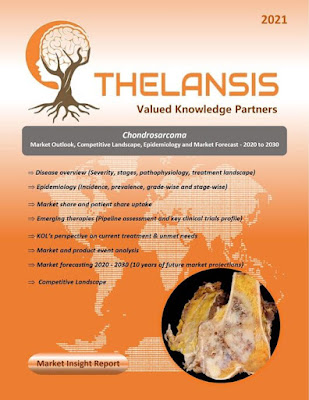Frontotemporal Dementia (FTD) – Market Outlook, Epidemiology, Competitive Landscape, and Market Forecast Report – 2021 To 2032
Frontotemporal dementia (FTD) describes a cluster of neurocognitive syndromes that present with impairment of executive functioning, behavioural changes, and a decrease in language proficiency. FTD is the second most common form of dementia in people under the age of 65, and its prevalence is expected to rise as the population ages. FTD is a highly heritable disorder despite varying heritability among different clinical syndromes and subtypes due to various gene mutations. Up to 50% of FTD cases with autosomal-dominant inheritance report a family history of FTD. Clinical diagnoses include behavioural variant FTD (bvFTD); primary progressive aphasia (PPA), which affects language; and disorders that primarily affect movement, progressive supranuclear palsy (PSP), and corticobasal degeneration (CBD).
- The annual prevalence of FTDs varies between 18 to 25 cases per 100,000 population in the USA.
Thelansis’s “Frontotemporal Dementia (FTD) Market Outlook, Epidemiology, Competitive Landscape, and Market Forecast Report – 2021 To 2032" covers disease overview, epidemiology, drug utilization, prescription share analysis, competitive landscape, clinical practice, regulatory landscape, patient share, market uptake, market forecast, and key market insights under the potential Frontotemporal Dementia (FTD) treatment modalities options for eight major markets (USA, Germany, France, Italy, Spain, UK, Japan, and China).
KOLs insights of Frontotemporal Dementia (FTD) across 8 MM market from the centre of Excellence/ Public/ Private hospitals participated in the study. Insights around current treatment landscape, epidemiology, clinical characteristics, future treatment paradigm, and Unmet needs.
Frontotemporal Dementia (FTD) Market Forecast Patient Based Forecast Model (MS. Excel Based Automated Dashboard), which Data Inputs with sourcing, Market Event, and Product Event, Country specific Forecast Model, Market uptake and patient share uptake, Attribute Analysis, Analog Analysis, Disease burden, and pricing scenario, Summary, and Insights.
Thelansis Competitive Intelligence (CI) practice has been established based on a deep understanding of the pharma/biotech business environment to provide an optimized support system to all levels of the decision-making process. It enables business leaders in forward-thinking and proactive decision-making. Thelansis supports scientific and commercial teams in seamless CI support by creating an AI/ ML-based technology-driven platform that manages the data flow from primary and secondary sources.
-1.jpg)

Comments
Post a Comment